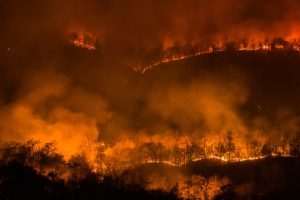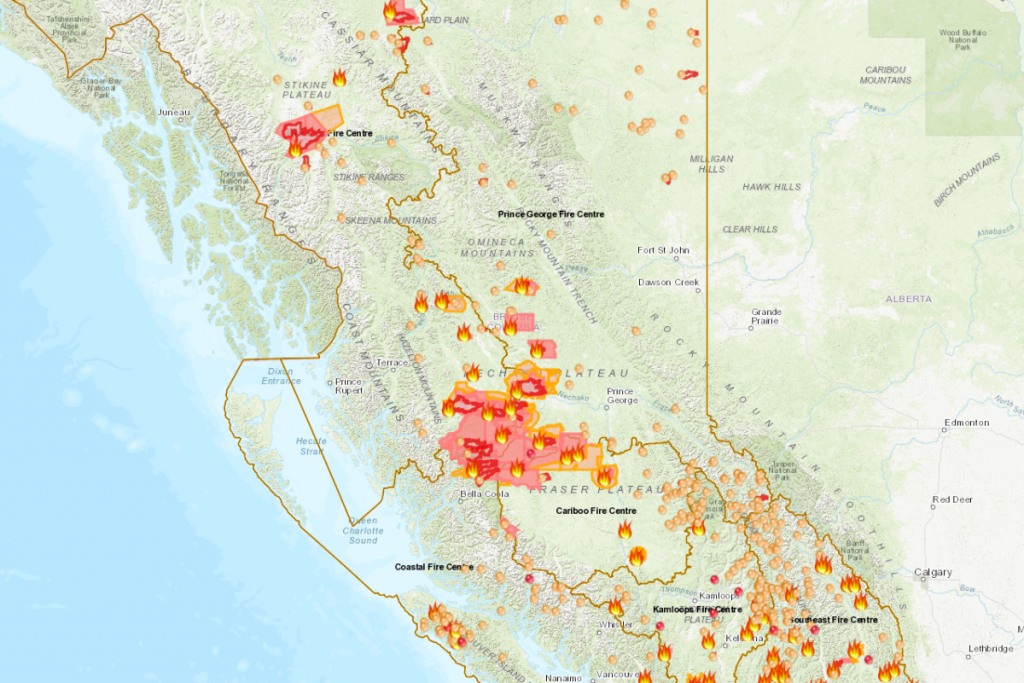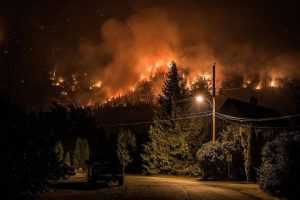AUGUST 24, 2018
In the past week the air has been very smokey here in Centralia and last weekend it got into the “very unhealthy”  stage due to forest fires and their smoke coming down from British Columbia. In the neighborhood the smoke eliminated all views of Mount Rainier and even to areas outside the neighborhood.
stage due to forest fires and their smoke coming down from British Columbia. In the neighborhood the smoke eliminated all views of Mount Rainier and even to areas outside the neighborhood.
For healthy folks they recommend not doing much in the outdoors. For seniors, kids and those with heart or respiratory illnesses this weather conditions can be very problematic.
Tuesday and Wednesday were the most dangerous, healthwise, in the local area. The measure of air pollutants is currently at 106 “unhealthy for sensitive groups”. Tuesday it floated up over 200 in the “Hazardous (Very, Very unhealthy)”. We got some relief yesterday but are back to a little smokey today. I thought it would interesting to learn more about the British Columbia fires that are causing these dreary days and polluted air.
The British Columbia Wildfire Service says more than 1,800 wildfires have been recorded since the season began on April 1, charring nearly 3,800 square kilometers of timber and bush. This is over three times the average. Click HERE for detailed current news on the many fires that are burning in British Columbia.

ACCORDING TO THE EPA:
Wildfire smoke can cause or worsen a number of health problems, including reduced lung function, infectious bronchitis, asthma and heart failure, according to the Environmental Protection Agency (EPA).
“When you’re breathing things in, before they get to the lungs, you’re affecting all of your upper airways – your nasal cavity, oral cavity, throat and vocal cords,” Ordon said.
Sinus trouble and increased cough can also occur. Children, the elderly and people with certain pre-existing conditions, including congestive heart failure, cystic fibrosis and allergic rhinitis, are particularly at risk.
“If somebody has underlying respiratory problems, like asthma, emphysema, COPD and if you’re a smoker, these people get into trouble quickly because they already have a compromised respiratory and pulmonary function,” Ordon said.
HOW TO STAY SAFE:

To minimize the threat of wildfire smoke, it is recommended that those in impacted areas remain inside with doors and windows shut to keep the polluted air outside.
Drivers are also advised to keep windows closed and set the air conditioning to recirculate mode.
Wearing the appropriate mask is crucial, because not all masks will prevent wildfire smoke inhalation.
“There are a lot of good, high-quality masks available,” Ordon said. “Make sure that it’s one that is high grade and has a rating system that will keep the majority of particles and smoke filtered out.”
Appropriate masks include N95 or P1000 disposable particulate respirators, and dust masks are not recommended.
Keeping an eye on local air quality reports and using an air filter in your home will also help reduce the risk of smoke exposure.
Seeing these pictures makes me appreciate that we are not in the middle of these fires and feel sympathy for those who are being evacuated or even just having to live in these areas. Stay safe by watching the air quality reports and staying inside when those numbers creep up. We are just in the middle of forest fire season so this could last awhile.
QUOTE OF THE WEEK:


